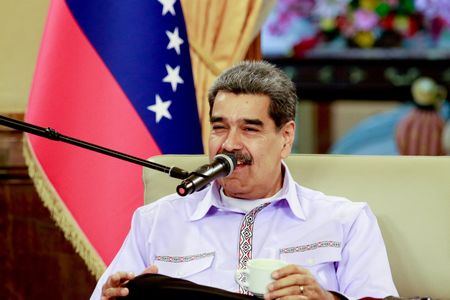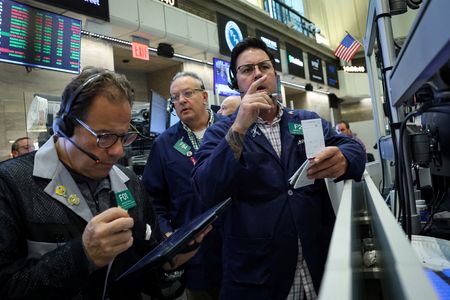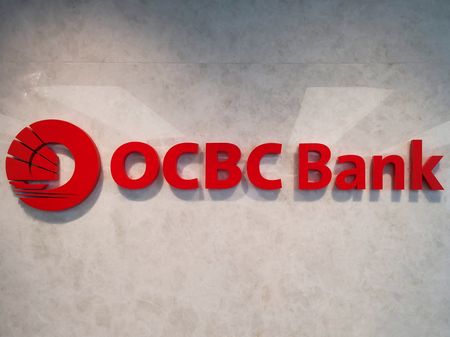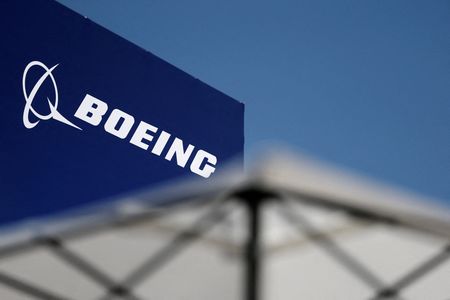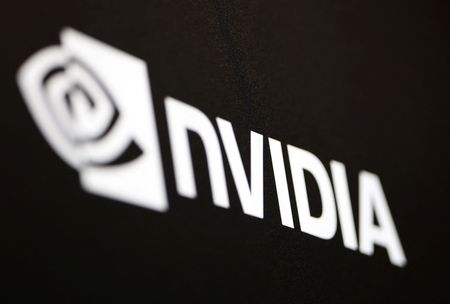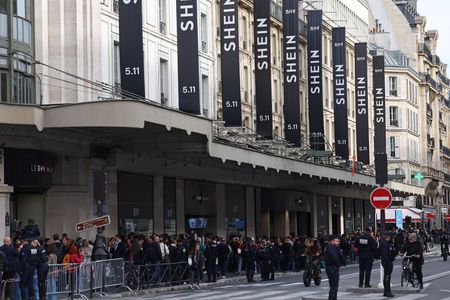By Rodrigo Campos
NEW YORK (Reuters) -Venezuela, a debt-defaulted nation with an economy devastated by years of mismanagement and international sanctions, has become a surprise darling of bond investors, with returns for its dollar bonds of over 80% poised to lead emerging markets this year.
The surge in prices to six-year highs, on the back of renewed expectations for a change of government, is warranted according to investors. But as declines on Thursday show, the duration of the rally is in doubt.
“I think it’s justified, but in terms of how much further you can go, it is a question of what comes next with respect to U.S. action,” said Kathryn Exum, co-head of sovereign research at Gramercy.
The latest leg of the bonds’ rally began in September, when ships off the Venezuelan Caribbean coast were targeted by U.S. strikes. U.S. President Donald Trump later heightened his rhetoric against President Nicolas Maduro’s government, confirming he authorized the CIA to conduct covert operations in Venezuela and offering a $50 million reward for information leading to Maduro’s arrest.
Regime change, investors say, could dislodge long-awaited debt restructuring talks that could enable them to get money out of the notably cheap securities, which have nearly doubled in value this year but remain in deeply distressed territory below 30 cents on the dollar.
Yet Polymarket, which allows users to place bets on real-world events, showed the probability of a U.S.-Venezuela military confrontation before the end of 2025 stood at 30%, down from 70% late last month.
The South American oil producer defaulted on its international bonds in 2017, and prices have for years fluctuated alongside the relationship between Washington and Caracas.
SEB’s Erik Meyersson said the still-trading bonds are “allowing investors to effectively bet on an eventual debt workout via political change.” The Trump administration has a “trifecta of reasons” to pursue regime change, from the country’s oil and gas assets to a desire to counter China’s influence in Latin America, he added.
But those betting on Venezuela have been burned before. The bonds last hit current levels in 2019, when the U.S. recognized opposition leader Juan Guaido as president.
The next leg of the rally appears less straightforward, investors said.
“We view the recent rally in Venezuelan bond prices as an opportunity to reduce exposure, rather than to add risk,” Alejo Czerwonko, chief investment officer for emerging markets Americas at UBS Global Wealth Management, said in a note.
“Even if regime change were to occur and the U.S. were to ease sanctions, Venezuela has been in default regarding debt payments for eight years, and faces one of the most complex sovereign debt restructurings in modern history,” he said.
With a basket of diversified sovereign dollar bonds returning around 4% to 7%, Czerwonko said “waiting for a resolution to the Venezuela debt saga is far from costless.”
Venezuela’s unpaid stock is about $60 billion in defaulted bonds and balloons up to around $150 billion once interest, loans to state oil company PDVSA, arbitration awards and bilateral debt are included.
(Reporting by Rodrigo Campos in New York; editing by Libby George, Christian Plumb and Richard Chang)

